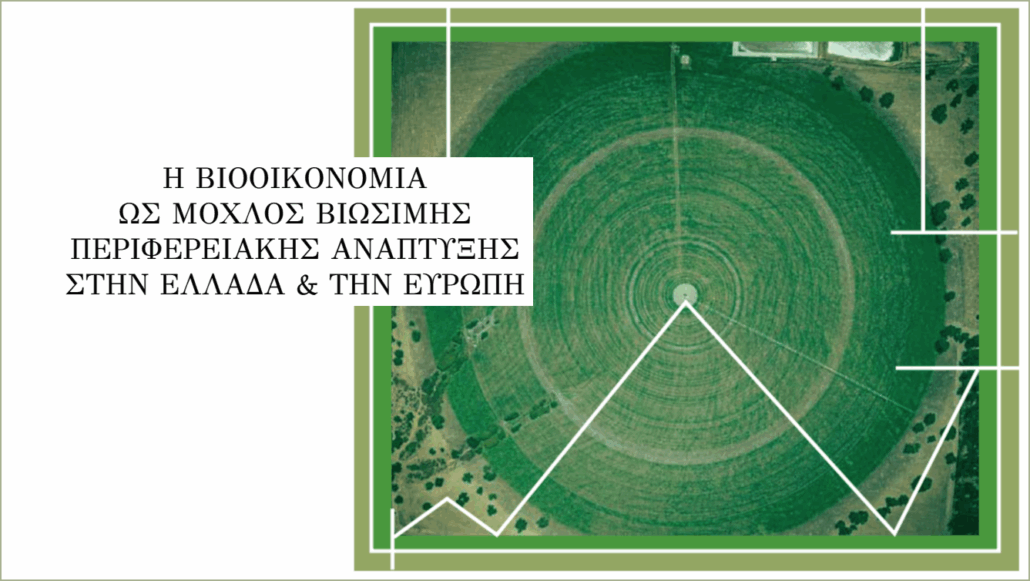Bioeconomy as a driver of sustainable regional development in Greece & Europe
As Europe strengthens efforts toward climate neutrality, bioeconomy is emerging as a potential solution for sustainable economic development. A new working paper, authored by by Panagiotis Koronaios, researcher at the Institute of Urban Environment and Human Resources at Panteion University, discusses how bioeconomy strategies can unlock environmental and economic benefits, particularly in countries like Greece facing both ecological stress and economic transition.
The paper titled “Bioeconomy as a driver of sustainable regional development in Greece & Europe”, recently released in Greek by the ENA Institute for Alternative Policies, analyzes how the bioeconomy can support regional resilience, innovation and green jobs. Developed at Institute of Urban Environment and Human Resources at Panteion University – a partner of the BIO2REG project -, the study aligns with BIO2REG’s mission to support Europe’s regions shift from fossil-based economies to bio-based, sustainable systems.
According to the paper, bioeconomy accounts for €2.3 trillion in turnover across the EU, contributing to 8.2% of total employment. However, in countries like Greece, where awareness is still limited, the full potential is largely untapped.
The paper showcases European examples of successful bio-based innovation to help readers grasp how bioeconomy contrasts with traditional economic activities. Production of biodegradable wheat straws by Staramaki in Greece and manufacturing cod skin medical products in Iceland demonstrate how waste streams and biological resources can be made into value-added products.
The paper argues that the bioeconomy can act as a catalyst for regional economic development by leveraging natural resources and connecting the agricultural sector with new technologies and emerging markets. In Greece, bioeconomy principles have particular potential in the primary sector (agriculture, forestry, fisheries), tourism and the pharmaceuticals, building on the country’s rich biodiversity and cultural heritage.
Despite isolated efforts, the paper identifies the lack of a national bioeconomy strategy as a major challenge. Only two Greek regions, Crete and Central Macedonia, have incorporated bioeconomy into development plans. The authors point to the absence of a coherent institutional framework as a key difficulty in developing the bioeconomy in Greece, even though the relevant capabilities and promising initiatives are present. A coordinated national framework supported by investment and regulatory alignment is essential for scaling innovation and attracting funding from EU programmes like Horizon Europe, LIFE and the Common Agricultural Policy (CAP).
BIO2REG connects the knowledge to practice
While the working paper highlights the untapped potential of the bioeconomy, particularly in Greece, it stresses the need to turn knowledge into practice. This is precisely where the BIO2REG project becomes a crucial tool. Funded by Horizon Europe, BIO2REG is working to help regions transition to bio-based development by identifying best practices, supporting knowledge exchange and set-up of a transition action plan.
Further reading
To read a detailed English summary of the working paper, visit the ENA Institute website.
To access the full paper in Greek, visit: ENA Full Paper (PDF)



